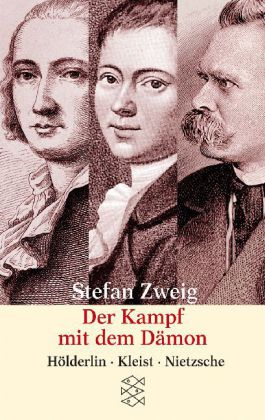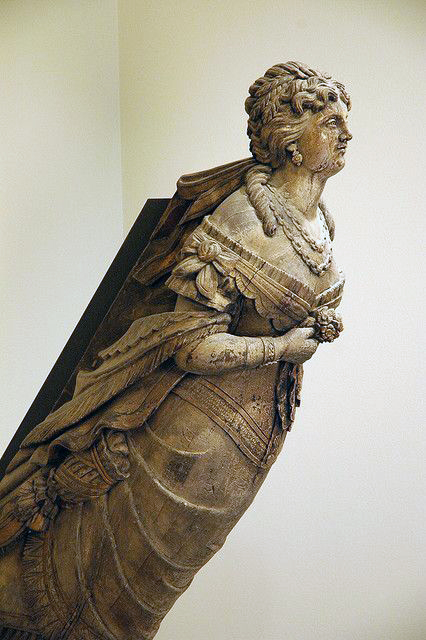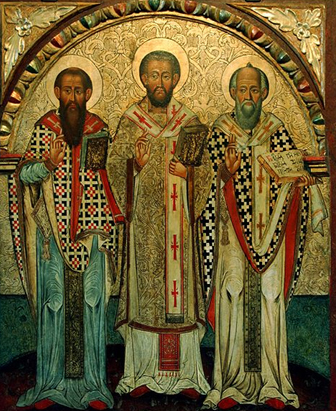by Ferdinand Bardamu
 Christianity: the grandmother of Bolshevism?
Christianity: the grandmother of Bolshevism?
In 1933, the German historian Oswald Spengler wrote: “All Communist systems in the West are in fact derived from Christian theological thought… Christianity is the grandmother of Bolshevism.” This alone makes Christianity one of the most destructive forces in world history, a force so radioactive it destroys everything within its immediate vicinity. But how is this even possible?
Equality is such a fundamental aspect of the church’s kerygma that if it were removed the entire ideological structure of Christian orthodoxy would collapse like a house of cards. The “catholicity” of the church signifies that membership in the body of Christ is open to all men, regardless of ethno-linguistic or socio-economic differences. Salvation, because it is equally available to all, means that all men possess the same innate capacity to achieve it. There is also universal equality in sinful depravity, as well as in the possession of unmerited divine grace. Jesus’ commandment to love one’s neighbor as oneself is merely the application of universalist and egalitarian principles to human social life. In the New Testament, believers are asked to serve one another, with the aim of achieving social equality within an ecclesiastical setting.
Assimilation of Platonic idealism by Ante-Nicene theologians added a metaphysical dimension to the egalitarian pronouncements of the New Testament. When God created man, he imparted the breath of life through his nostrils. This “breath,” psyche, or anima, translated “soul,” served as the life-principle of the animate body. The equality of souls before god obtains because all bear the same imago dei or image of god. In the Garden of Eden, man lived in circumstances of natural equality. St. Augustine writes that before the Fall, no one exercised dominion or lordship over anyone else, but that all ruled equally and indifferently over the inferior creation. The natural equality that once existed in this mythical prehistory was lost because of sin, which corrupted human nature. This brought slavery and other inequalities into the world. The church believed that the kingdom of god would restore Edenic conditions at the end of time.
To the Ante-Nicene church, belief in spiritual equality was not some ossified formula to be recited by rote like the Apostle’s Creed, but an ever-present reality with real-world, “anticipatory” consequences. Gospel narratives that incorporated elements of primitive communism were received favorably by the church and declared canonical. In Luke 3, John the Baptist, a member of the communist Essenes, exhorts his followers to share their clothing and food with those who are destitute. The communist pronouncements of John foreshadow the more explicit primitive communism of Jesus.
In Luke 4, Jesus begins his ministry by inaugurating an acceptable “year of the Lord’s favor.” This is a direct reference to the Hebrew Jubilee, which came every fifty years after the completion of seven sabbatical cycles. The proclamation of Jubilee signified manumission of slaves, absolution of debt, redistribution of property, and common ownership of the land’s natural produce.
According to Leviticus, no one owned the land, except YHWH; only its usufruct could be purchased. This was not a literal year of Jubilee inaugurated by Jesus. The passages being quoted in Luke are from Isaiah, not Leviticus which contains the actual Hebrew legislation. The imagery associated with the Jubilee is used to describe the realized eschatological features of the new age inaugurated by the coming Messiah. His return symbolizes the complete reversal of the old order. The new age will bring about communistic social relations through the ethical transformation of believers. From a biblical hermeneutic standpoint, the Torah Jubilee foreshadows the greater Jubilee now realized in Jesus’ ministry.
Jesus’ economic teachings go far beyond Levitical communal sharing. They necessitate large-scale re-organization of society along egalitarian and communist lines. In Luke 6, Jesus commands his audience to give to all those who beg from them, without distinction as to friend or enemy. His condemnation of violent retaliation is closely linked to this ethic of universal sharing; the communist social arrangement envisaged by Jesus cannot flourish in an atmosphere of violence and suspicion. The eschatological age inaugurated by the Messiah is one where lending without expectation of financial reward has become a new moral obligation, one that must be carried out if one wishes to obtain treasure in heaven.
That early Christian communist practice was morally obligatory is supported by numerous passages from the New Testament. According to 1 John 3:16-17, true believers will sacrifice their lives for the good of others, especially by giving to those in need; anyone who refuses to do this cannot claim to be a Christian in good moral standing.
In the Ante-Nicene church, fellowship was not only spiritual, but included mutual aid in the form of concrete material and economic assistance. The canonical epistle of James defines true religion as caring for “orphans and widows,” an ancient Hebrew idiom for the economically disadvantaged. Those who favor the rich over the poor, instead of treating both equally, are sinners in need of repentance. They have transgressed Jesus’ great commandment to “love thy neighbor as thyself.” James says that “faith without works is dead.” What do these “works” consist of? We are informed that true faith is shown by those who feed and clothe the wretched of the earth. If one refuses to do this, one’s very identity as a Christian is placed in jeopardy.
In 2 Corinthians, Paul provides additional theological justification for early Christian communist practice using the kenosis of Christ as a reference point. Christians were expected to follow the example of Jesus, who was “rich” in his pre-existent state, but willingly “impoverished” himself so that believers could become “rich” through his “poverty.” This meant that wealthier Christian communities were morally obligated to share their abundance of riches with poorer ones. The purpose of re-distributing wealth from one Christian community to another, writes Paul, was the achievement of economic equality between believers.
The apostolic identification of “true faith” with material re-distribution led to the establishment of the world’s first welfare system and centrally planned domestic economy. While some form of primitive communism existed before the institutionalized Christian communistic practices of the first three centuries AD, these were reserved for small communities of Greek-speaking intellectuals or Jewish religious fanatics. What made Christian communism unique was its moral universalism and non-ethnocentric orientation. Given the egalitarian thrust of early Christian communist ideology, it should come as no surprise that the central organizing principle of classical Marxist economics, “From each according to his ability, to each according to his need,” was lifted verbatim from the pages of the New Testament.
Marxism-Leninism, a murderous 20th century ideology that led to the deaths of over 100 million individuals worldwide, was directly inspired by the ethical pronouncements of the New Testament. This is a source of great embarrassment to the Christian religionist. In defense, apologists emphasize the voluntary nature of communist practice in early Christianity. Yet this apologetical evasion is clearly anachronistic.
Freedom defined as the ability to choose in the absence of external coercion is a uniquely modern idea inherited from post-Enlightenment philosophies of liberalism. This idea of freedom affirms the sovereign will as one obedient to itself, but also reducible to the basic laws of the free market. However, this understanding of freedom is diametrically opposed to the one encountered in the ancient Greek philosophical tradition. In this context, there is no sharp distinction between voluntary action and involuntary obligation; individuals are not conceptualized as autonomous agents with a multitude of options to choose from.
Instead, freedom is the ability to pursue the Good without impediment; only a properly functioning will, in which the subject has fully realized his true essence, can do this. To do evil goes against the proper functioning of the will; it is not an expression of one’s individual capacity for freedom. No one willingly or voluntarily refuses to pursue the Good; rather, they lack sufficient moral training or the appropriate self-restraint.
The Christian in the ancient world was free to not worship or consume meat sacrificed to idols; he was not free to do the opposite because he was no longer pursuing the Good. A Christian who violated the prohibition against idolatry was not legitimately exercising his capacity for free will, even though the prohibition had been violated in the absence of external coercion. Instead, such an action was the result of moral ignorance or error.
The same could be said of the early Christian practice of communism. This was only “voluntary” in the sense that Christians were freely pursuing a morally acceptable outcome. If freedom is pursuit of the Good without obstruction, Christians were morally obligated to participate in the communist socio-economic practices of the church, otherwise they would not be considered righteous before god.
 The parental home was not only very Catholic, it was also the place where he experienced maltreatment as a teenager: experiences that shaped his character. Decades later, he made this topic the subject-matter of various publications that aim to prevent such events.
The parental home was not only very Catholic, it was also the place where he experienced maltreatment as a teenager: experiences that shaped his character. Decades later, he made this topic the subject-matter of various publications that aim to prevent such events.




